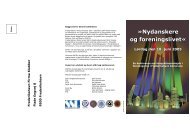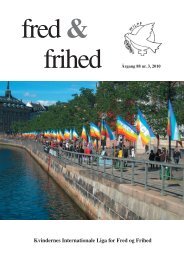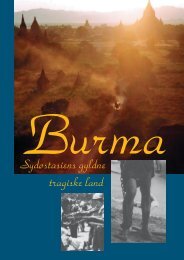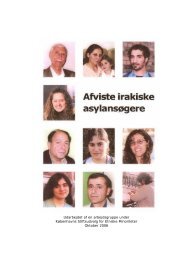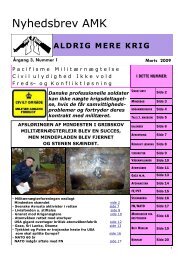Untitled
Untitled
Untitled
Create successful ePaper yourself
Turn your PDF publications into a flip-book with our unique Google optimized e-Paper software.
18 THE CIA IN IRAN<br />
ence of opinion during the discussions. It also quickly became<br />
apparent that the SIS was perfectly content to follow whatever lead<br />
was taken by the Agency. It seemed obvious to Wilber that the<br />
British were very pleased at having obtained the active cooperation<br />
of the Agency and were determined to do nothing which might<br />
jeopardize U.S. participation. At the same time there was a faint note<br />
of envy expressed over the fact that the Agency was better equipped<br />
in the way of funds, personnel, and facilities than was SIS. Wilber<br />
reported the preliminary conversations concerning a three-way<br />
channel, set up for this occasion, which was designed to ensure<br />
immediate relay between Washington, Nicosia, and Tehran. That is,<br />
a message originating at any one of these places would be sent by<br />
the most expeditious route to the other two. This route was the<br />
Middle East Communications Authority (MECA) link, the relay<br />
station a few miles outside of Nicosia.*<br />
Discussions at Nicosia moved on to a disclosure of assets by both<br />
parties. Those by SIS were centered upon the contacts of the<br />
Rashidian brothers in such fields as the armed forces, the Majlis<br />
(Iranian Parliament), religious leaders, the press, street gangs,<br />
politicians, and other influential figures. When this material was<br />
relayed from Nicosia, the Tehran Station commented that it was their<br />
belief that these assets had been far overstated and oversold. In reply<br />
it was pointed out that SIS was as aware as we of the weaknesses of<br />
the Rashidians, but that one of the strongest points in their favor was<br />
their avowed willingness to risk their possessions and their lives in<br />
an attempt against Mossadeq. In the critical days of August 1953<br />
[the Rashidian brothers**] did display such a willingness. SIS<br />
disclosures were followed by those of Dr. Wilber for CIA. Prior to<br />
Wilber's departure a discussion was held at Headquarters to<br />
determine which of the station assets should be disclosed to the SIS<br />
in return for promised disclosures by the SIS<br />
* Unfortunately, communications between Nicosia and Tehran were not as<br />
rapid as was hoped during this period in which more than 45 cables were<br />
exchanged.<br />
* * Please see page 49 for a brief bio of the Rashidian brothers, who were instru<br />
mental in assisting the CIA and Britain's SIS in carrying out the coup.



